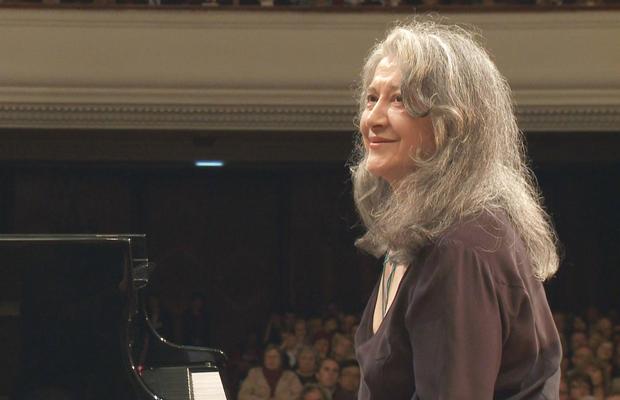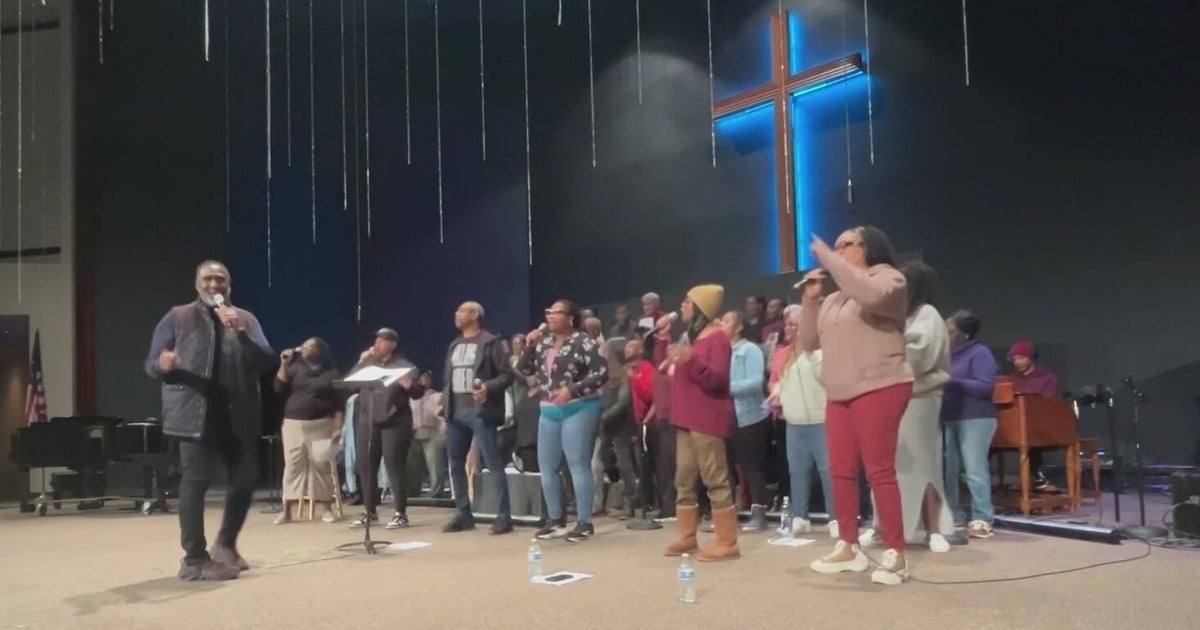Virtuoso pianist Martha Argerich on her enduring career
Pianist and longtime classical music star Martha Argerich first played in the world’s great concert halls in the 1960s. She’s often described as a musical genius, but she’s also been a recluse for decades. So when we discovered Argerich would be a Kennedy Center Honoree, we hoped she would agree to an interview. She met with Seth Doane in Rome, where they talked about her remarkable and enduring career.
ROME, Italy -- There are few people on the planet who has a dazzling ability to pull emotion from the 88 keys of a piano.
Virtuoso Martha Argerich mesmerizes audiences, critics -- just about everyone except, perhaps, herself.
“It’s complicated,” Argerich said. “It’s not a relationship like that – ‘I love the piano, and I love to practice, and I love to play.’ It’s not like this.”
“Sometimes it’s like this, but not always. Sometimes it’s, ‘Oh, I don’t want to practice. I don’t want to play. What is this?’ I don’t like the sound of the piano. I prefer other instruments. I like strings a lot,’” she added.
Off-stage, the unpredictable Argerich reveals a personality as complex as the music she plays.
“‘The piano doesn’t love me today.’ Sometimes I say that. ‘Or the piano doesn’t like me. I don’t play it.’ I say that,” she said.
“But the piano is an inanimate object,” Doane said.
“Yeah, but I don’t feel it like that,” Argerich said.
It certainly comes alive in her hands. Argerich calls the piano her “oldest companion,” but specifies it’s not always a friend.
“To hear you speak it sounds like you are talking about a person, a relationship,” Doane said.
“Well, that’s what it is,” Argerich said.
That sometimes-rocky relationship has taken her from her native Argentina to the world’s greatest performance halls. A documentary made by one of her three daughters shows Argerich behind-the-scenes, at times anxious about playing.
“I really don’t want to play, you know,” she could be heard saying.
She’s known to cancel concerts and she dislikes doing interviews.
But on the day we met in a dressing room at Rome’s Parco della Musica, she was warm, endearing and treated us to a little concert.
Later, we watched her practice with her friend, Antonio Pappano, who leads Italy’s famed Santa Cecilia Orchestra, which she’ll perform with in the U.S. next fall. She rarely does solos because they make her lonely.
“Music is wonderful, but the profession is not,” Argerich said.
Now 75 years old, she has battled cancer twice, had three marriages and says the piano often kept her away from her daughters.
During our interview, she suggested one daughter, Annie, join us and share her seat.
Argerich does things her way.
“We had a fun life, actually, you know? We lived in a big house that was open all the time,” Annie said.
And there was always music, particularly late into the night.
“So I would go to bed and I could hear –” Annie said.
“You would be trying to sleep and you’d hear your mom practicing?” Doane asked.
“No, I didn’t try – I slept!” Annie said, adding that it was normal to have the piano playing all the time.
It was Annie who first learned her mom was going to receive the Kennedy Center Honor and recognition from President Barack Obama.
“She doesn’t just play the piano, she possesses it. As a critic once wrote, she is an unaffected interpreter whose native language is music,” Mr. Obama said during the White House ceremony.
It’s a contribution Argerich almost seems to shrug off.
“Would you do it differently if you could looking back?” Doane asked.
“I think so,” Argerich said.
“What would you do?” Doane asked.
“I didn’t choose it. I was a pianist before I could decide that I was one – or that I was going to – I didn’t choose. It’s not a choice,” Argerich said.
Not a choice. Rather, a natural ability.
Argerich told us “one always wants to do something one is not doing,” revealing the human side of a genius.
Watch the 39th annual Kennedy Center Honors Tuesday, Dec. 27, at 9/8 p.m. CST on CBS.







